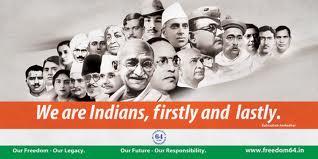On February 15, 2 fishermen on board the fishing vessel Saint Anthony was shot at, due to which 2 fishermen died. This shooting was done by Italian Marines, on board the vessel MT Enrica Lexie which was around 20 nautical miles from the Indian Coast.
You can read about the incident at:
http://en.wikipedia.org/wiki/2012_Italian_shooting_in_the_Arabian_Sea
The Italians have their version and the fishermen and the Indian authorities have theirs. Currently the 2 marines have been arrested and are facing trial for murder. The simple question is whether this qualifies as murder.
The known facts, actions of the vessel and the circumstantial evidence indicates that the Indian version is probably closer to the truth. It can also be reasonably assumed that the Italian Marines or the vessel neither intended to nor had not motive or reason to attack and kill Indian fishermen.
Having sailed in war zones, pirate infested areas, and dangerous waters, I have some idea of the atmosphere that prevails on board. With over 100 vessels having been taken over by pirates, with crew and vessel held hostage for years, it’s not a regular situation.
In all probability, the fishing vessel came too close, and I have seen this happen on umpteen occasions. The Italians panicked, thought that they were under attack, overreacted and shot. Unfortunately their error cost 2 innocent lives.
In my opinion, the incident should be treated for exactly what it is. An accident. I’m not suggesting that no action should be taken, either against the vessel or against the Marines who were guilty at least of an error of judgment. I’m suggesting that they be treated in the same manner as we would treat a driver who killed innocent pedestrians due to an error of judgment.
Whilst the two lives lost, cannot come back, it would only be fair that they be paid adequate and handsome compensation, which I’m sure the Italians would be more than happy to do. And the Italian Marines should be censured, sentenced if required and repatriated to their home country, with parole. The two Marines were soldiers who were engaged in a war. And they did what they have been trained to do. Unfortunately it was the wrong action at the wrong place. But its time we behaved in a reasonable and mature manner and show that in India, justice is not blind, but fair and reasonable.
We already have two victims of unfortunate circumstances. Let’s not add to the list.
http://en.wikipedia.org/wiki/2012_Italian_shooting_in_the_Arabian_Sea
The Italians have their version and the fishermen and the Indian authorities have theirs. Currently the 2 marines have been arrested and are facing trial for murder. The simple question is whether this qualifies as murder.
The known facts, actions of the vessel and the circumstantial evidence indicates that the Indian version is probably closer to the truth. It can also be reasonably assumed that the Italian Marines or the vessel neither intended to nor had not motive or reason to attack and kill Indian fishermen.
Having sailed in war zones, pirate infested areas, and dangerous waters, I have some idea of the atmosphere that prevails on board. With over 100 vessels having been taken over by pirates, with crew and vessel held hostage for years, it’s not a regular situation.
In my opinion, the incident should be treated for exactly what it is. An accident. I’m not suggesting that no action should be taken, either against the vessel or against the Marines who were guilty at least of an error of judgment. I’m suggesting that they be treated in the same manner as we would treat a driver who killed innocent pedestrians due to an error of judgment.
Whilst the two lives lost, cannot come back, it would only be fair that they be paid adequate and handsome compensation, which I’m sure the Italians would be more than happy to do. And the Italian Marines should be censured, sentenced if required and repatriated to their home country, with parole. The two Marines were soldiers who were engaged in a war. And they did what they have been trained to do. Unfortunately it was the wrong action at the wrong place. But its time we behaved in a reasonable and mature manner and show that in India, justice is not blind, but fair and reasonable.
We already have two victims of unfortunate circumstances. Let’s not add to the list.














